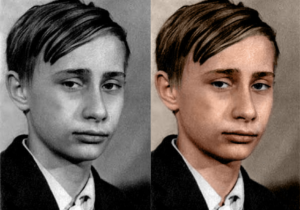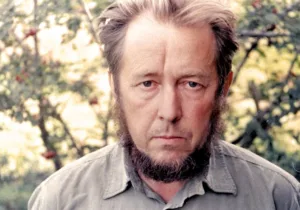One hundred years ago, Lenin died and was buried in his mausoleum on Red Square in Moscow. Yet, even from the grave his thunderous voice still imperiously resounds throughout comparative and international politics. What’s more, the shadow cast by the founder of the Soviet Union and Communist International seems to only be growing, giving Lenin an even sweeter posthumous revenge.
Vladimir Ilyich Ulyanov (1870-1924), nom de partie, Lenin, first immersed himself in Marxist thought at Kazan University. His elder brother Alexander was executed in 1891 for involvement in an assassination attempt on the Tsar, with Lenin’s own first arrest following shortly thereafter in 1895. Upon the disappointing failure of the 1905 revolution, Lenin went into West European exile until 1917, when he and the Bolshevik leadership dramatically returned via a special train supplied by Germany to St. Petersburg, where they organized the overthrow of the provisional government and the foundation of the Union of Soviet Socialist Republics.
Containment of Lenin’s Communist doctrine and revolutionary praxis would come to define American foreign policy after World War II. Even so, the most astute Russian analysts, including George Kennan, Paul Nitze, Samuel Huntington, and Zbigniew Brzezinski may still have failed to properly appreciate the majesty and power of Lenin’s thought, which at over twenty-seven thousand pages across forty-five volumes consistently demonstrates a social-theoretic analytical intelligence which, apart from Marx himself, is equaled only by Thomas Hobbes and surpassed only by Martin Luther. In humble recognition of the lifetime of reading and reflection that might be dedicated to the exploration of such world-historical genius, the following six books sole-authored by Lenin are of paramount importance.
The Development of Capitalism in Russia, The Process of Formation of a Home Market for Large-Scale Industry (1899), his first, synthesizes enormous statistical evidence to demonstrate that the true revolution in productive forces has already occurred, but merely remains to be properly controlled through socialization. As capitalism advances, the worker, merely to earn a living, must compete for increasingly distant, precarious, and inadequate compensation, striving with increasing effort for diminishing return. Simultaneously, the supportive character of communal life becomes increasingly dissolved in vast, impersonal, and mechanized space, wherein the isolated individual, torn from the natural fibers of soil and consanguinity, must existentially confront his own superfluity. “Capitalism destroys local seclusion and insularity, and replaces the minute medieval divisions among cultivators by a major division, embracing the whole nation, that divides them into classes occupying different positions in the general system of capitalist economy” (316).
What is to be Done?, Burning Questions of Our Movement (1902) inaugurates identity politics, the extremely insidious tendency to affirm or negate a resolution, and to obey or disobey an institution based on the purported social attributes of those deemed responsible. Lenin argues that theoretical recognition of the inherently “bourgeois” character of parliamentary democracy—whereby its laws merely serve the interests of the capitalists—results in its normative disqualification, and the need to replace it with a “revolutionary social democracy” theoretically positioned between economists whose concepts are biased and terrorists who have no concepts. For Lenin, anarchist political violence is wrong not because it is immoral (for the Hebrew God does not exist) nor because it is unlawful (for the bourgeois State ought not to exist), but because it is unscientific, not conforming to the historical materialist theory by which the party will awaken, inform, mobilize, and empower the proletariat. “We must take upon ourselves the task of organising an all-round political struggle under the leadership of our [Russian Social-Democratic Labour] Party in such a manner as to make it possible for all oppositional strata to render their fullest support to the struggle and to our Party” (428). Three years later, his more compact Two Tactics of Social-Democracy in the Democratic Revolution clarifies the near-term political objective as consisting of a “revolutionary-democratic dictatorship of the proletariat and peasantry” to undertake the dismantling of the exploiting classes.
Materialism and Empirio-criticism, Critical Comments on a Reactionary Philosophy (1909), fourth, is the principal submission of the Marxist epistemology that has permanently reconfigured the default setting as to the teaching of literature in the humanities. Lenin advances the theory that all art can be judged according to its contributions for or against the proletariat revolution. Likewise, all existing institutions can be disregarded upon proper theoretical appreciation of the social injustices involved in their creation and perpetuation. Lenin contends, “Matter is primary. Sensation, thought, consciousness are the supreme product of matter organised in a particular way” (55).
The question of whether to be a pure materialist in matters of metaphysics, where thoughts and emotions are merely the outputs of physical sensations, is by no means a purely abstract debate. Whereas the doctrine of Christian salvation is fundamentally premised on the eventual outward effects of personal spiritual regeneration, that of historical materialism anticipates the arrival of human happiness upon the satisfactory completion of revolution in external conditions, resulting in the insignificance if not invalidity of personal morality. “The materialist elimination of the ‘dualism of mind and body’…consists in the assertion that the mind does not exist independently of the body, that mind is secondary, a function of the brain, a reflection of the external world” (90).
Published between the army’s deposition of the Tsar and Lenin’s overthrow of the caretaker government, Imperialism, The Highest Stage of Capitalism, A Popular Outline (1917) encapsulates the ingenious Marxist conception of foreign policy formation whereby concentrations of “advanced monopolist capital”—now known as major multinational corporations—irresistibly induce bourgeois governments to undertake external aggression in order to acquire access to new markets for their goods. From Al-Fateh to Antifa, from Occupy to the Oath Keepers, or from PETA to the Proud Boys, almost every formidable culture of resistance today may be heard paraphrasing Lenin’s argument.
This anti-globalism international corresponds to the accompanying political theory of the awesome State and Revolution, The Marxist Theory of the State and the Tasks of the Proletariat in the Revolution (1917), which problematizes as follows:
“The proletariat needs state power, a centralised organisation of force, an organisation of violence, both to crush the resistance of the exploiters and to lead the enormous mass of the population—the peasants, the petty bourgeoisie, and semi-proletarians—in the work of organising a socialist economy” (409).
This transformation shall begin to occur soon after politically corrected farmers and workers, once organized into Soviets, are taught to recognize the meaninglessness of the ability “To decide once every few years which members of the ruling class is to repress and crush the people through parliament” (427). In addition to the Soviet Union, The State and Revolution would serve as the primary conceptual inspiration for the Constitution of the Mongolian People’s Republic (1924), the Constitution of the Socialist Republic of Viet Nam (1946), the Socialist Constitution of the Democratic People’s Republic of Korea (1972), and the Laotian Supreme People’s Assembly (1975-), all but the first of which would come into conflict with the United States.
Having glimpsed the almost immeasurable influence of Leninist thought, the author feels prepared at last to pose the question: Even if a planned economy is right, what gives Lenin the right to plan the economy? In what sense was he the legitimate ruler of Russia? “All power to the Soviets!,” he cries out. But what happens if the Soviets disagree with the Central Committee, or the Central Committee with the People’s Commissars, or the Commissars with their Chairman (Lenin)? Marxism-Leninism bases its appeal entirely on the supposed merits of its program, to the complete exclusion of the legitimacy of the programmers. We may therefore pronounce, upon this centenary of Lenin’s death, that although capitalism makes possible injustice, injustice makes possible socialism.






 Sponsor a student for Christianity & National Security 2024
Sponsor a student for Christianity & National Security 2024